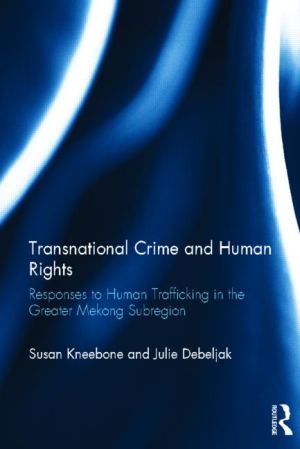
Despite the international community’s attempts to offer a coordinated response to the issue of ‘human trafficking’ in the twenty first century, there are indications that the trafficking is actually on the increase, and is a growing part of the global economy.
This book offers an evaluation of responses to the transnational crime of human trafficking and governance of the issue through a case study of the Greater Mekong Subregion (GMS) which comprises Cambodia, the People's Republic of China, Lao People's Democratic Republic, Myanmar, Thailand, and Vietnam. It analyses the international and national legal and policy frameworks and the role of governments, international and national non-governmental institutions, and regional processes, in responding to trafficking issues in the GMS. The book is based on the findings of a three year study conducted in the region, involving interviews with more than sixty individuals from relevant organizations and agencies, and examines the social, political and historical factors, including gender and age, labour exploitation and migration which are background to human trafficking issues in the GMS. The book does not just consider sex trafficking but also looks at labour trafficking and other forms of trafficking such as ‘forced’ marriages and false adoptions.
The advantages and limits of the new international framework for tackling human trafficking are explored from the perspective of the region’s experience with international and national multi-lateral programmes, illustrating how the new international framework for tackling human trafficking has translated into practice. The book considers issues about competing mandates, and gaps in strategies for protection and concludes with a discussion of broader lessons to be learned from the GMS situation and suggestions for future governance strategies in the fight against trafficking.